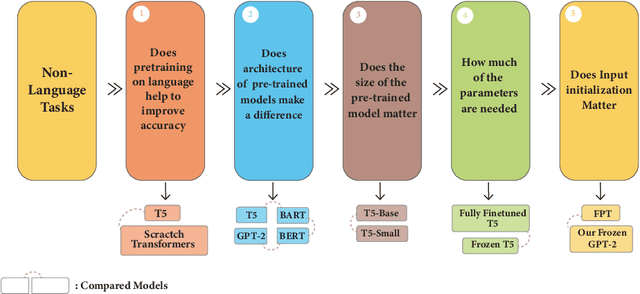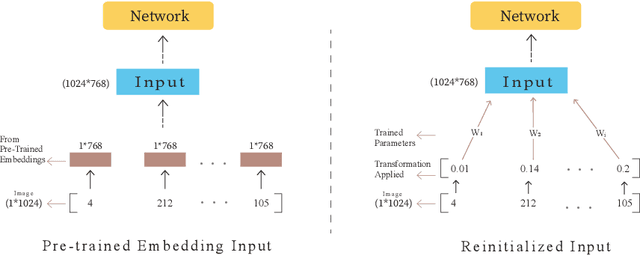Investigating Pre-trained Language Models on Cross-Domain Datasets, a Step Closer to General AI
Paper and Code
Jun 21, 2023



Pre-trained language models have recently emerged as a powerful tool for fine-tuning a variety of language tasks. Ideally, when models are pre-trained on large amount of data, they are expected to gain implicit knowledge. In this paper, we investigate the ability of pre-trained language models to generalize to different non-language tasks. In particular, we test them on tasks from different domains such as computer vision, reasoning on hierarchical data, and protein fold prediction. The four pre-trained models that we used, T5, BART, BERT, and GPT-2 achieve outstanding results. They all have similar performance and they outperform transformers that are trained from scratch by a large margin. For instance, pre-trained language models perform better on the Listops dataset, with an average accuracy of 58.7\%, compared to transformers trained from scratch, which have an average accuracy of 29.0\%. The significant improvement demonstrated across three types of datasets suggests that pre-training on language helps the models to acquire general knowledge, bringing us a step closer to general AI. We also showed that reducing the number of parameters in pre-trained language models does not have a great impact as the performance drops slightly when using T5-Small instead of T5-Base. In fact, when using only 2\% of the parameters, we achieved a great improvement compared to training from scratch. Finally, in contrast to prior work, we find out that using pre-trained embeddings for the input layer is necessary to achieve the desired results.
 Add to Chrome
Add to Chrome Add to Firefox
Add to Firefox Add to Edge
Add to Edge